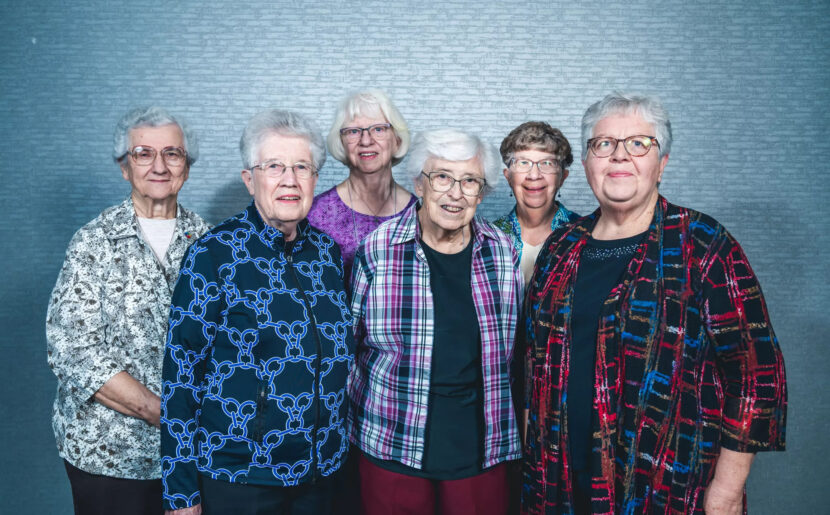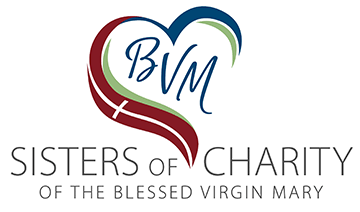BVMs Attend ‘Breaking Barriers to End Human Trafficking’ Conference

Diane Rapozo (l.), Mira Mosle, Mary Lechtenberg, OSF; Gwen Farry, Irene Lukefahr, and Marilou Irons, PVBM attend the Breaking Barriers to End Human Trafficking Conference in Chicago.
by Mira Mosle, BVM
Recently the United States Catholic Sisters Against Human Trafficking in Cincinnati, Ohio, celebrated its 10th anniversary. Six members of the Tri-State Coalition Against Human Trafficking in Dubuque, Iowa, attended the conference, including BVMs Diane Rapozo, Mira Mosle, Gwen Farry and Irene Lukefahr.
A significant name change was unveiled: Alliance to End Human Trafficking: Founded and Supported by U.S. Catholic Sisters. “You don’t have to be Catholic or a sister to be a member, you just need to have a passion to end human trafficking,” noted the executive director. “Ending human trafficking is everyone’s work.” Collaboration with many entities continues to grow.
Highlights from the Conference:
The Intersection of Migration and Human Trafficking:
Gwen Farry, BVM reported that false narratives about migrants, especially women and children, make them prime targets for both labor and sex trafficking. False narratives about immigrants include: they steal U.S. jobs; are typically criminals; don’t pay taxes; are not screened before arriving in the U.S.; and building a wall will stop human trafficking.
LGBTQ+ Youth:
Diane Rapozo, BVM shared that pervasive systemic and individual levels of hatred, stigma, and fear continue to create unsafe home, school, and church environments for many LGBTQ+ young people. This leads to greater homelessness and human trafficking. Increased legislative advocacy is needed to make it safer for LGBTQ+ and vulnerable youth.
Legal Complexities:
Mira Mosle, BVM gained insights into the multiple legal actions needed to stop trafficking. These include dealing with diplomats who have immunity but engage in domestic servitude, and the necessity of both criminal lawsuits, which put traffickers in prison, and civil lawsuits, which go after the profits made by businesses that support and enable trafficking—banks, hotels, and social media.
Talitha Kum:
Irene Lukefahr, BVM remarked that the conference convinced her that there is a world-wide movement working to end trafficking, including the local efforts of the Tri-State Coalition. One example is Talitha Kum, a network made up of 58 member organizations of women religious throughout 97 countries. All attempt to help some of the 50 million children, women, and men enslaved globally.
View: Alliance to End Human Trafficking: https://tinyurl.com/3nxewzpa.
